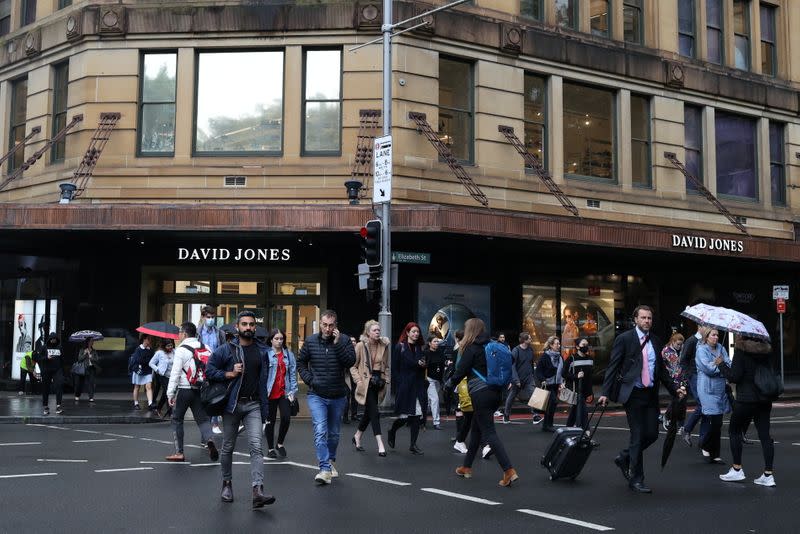By Swati Pandey
SYDNEY (Reuters) – Some Australian scientists have proposed to postpone mass inoculation using AstraZeneca’s COVID-19 vaccine to consider a different injection.
Issues around the vaccine in Australia, which registered only one new local case of coronavirus on Wednesday, have clouded its immunization plans, with 53 million doses of the AstraZeneca vaccine already on order.
Experts cited data showing that the AstraZeneca jab was 62% effective compared to more than 90% for a vaccine developed by Pfizer and its partner BioNTech.
“The question is really whether she (AstraZeneca) is able to provide collective immunity. We are playing a long game here. We don’t know how long it will take,” said Professor Stephen Turner, president of the Australian and New Zealand Society for Immunology (ASI) .
Turner added that the government should strive to obtain more Modern and Pfizer vaccines.
He previously told the Sydney Morning Herald that the AstraZeneca vaccine is not one “that I would be widely deploying because of its lesser effectiveness”.
In a statement, ASI said Turner was speaking as an immunology expert and that the body was not advocating a pause in implementation, as widely reported in the local media.
Australia has agreed to buy 10 million doses of the Pfizer vaccine, although neither AstraZeneca nor Pfizer has the approval of the country’s drug regulator, the Therapeutic Goods Administration (TGA).
AstraZeneca did not immediately respond to a request for comment email.
Its vaccine has been approved in Britain, India and Argentina and is being analyzed by several other countries, including South Korea and Brazil.
‘EFFECTIVE, SAFE, HIGH QUALITY’
Australia’s medical director Paul Kelly tried to address concerns about the effectiveness of the AstraZeneca vaccine, calling it “effective”, “safe” and “high quality”.
“The great advantage of the AstraZeneca vaccine is that it is being made here in Australia,” said Kelly. “It will be available as soon as the TGA gives its signal, which we hope will be in February.”
Kelly said Australia will have more data in February, as well as “real-world information” from London, which has already launched the vaccine.
Australia has been more successful than many other countries in managing the pandemic, with a total number of infections in the country of 25 million people out of about 28,600, with 909 deaths. (Graphic: https://tmsnrt.rs/34pvUyi)
Its success can be attributed in large part to the closure of borders and broad compliance with the rules of social distance, along with aggressive testing and tracking programs.
Given the low numbers of cases and rates of transmission in the community, some experts say Australia could hope for a more effective vaccine.
“The government needs to be flexible in its implementation decisions, once we have a better understanding of the effectiveness of the other vaccines,” said Adrian Esterman, president of Biostatistics and Epidemiology at the University of South Australia.
Australia reported a new case of local coronavirus in its most populous state in New South Wales on Wednesday.
In Queensland, hundreds of hotel quarantine guests were forced to restart their isolation after a handful of cases at the facility were linked to the UK’s highly contagious virus strain.
<^^^^^^^^^^^^^^^^^^^^^^^^^^^^^^^^^^^^^^^^^^^^^^^^^^^^^^^^^^ ^^^^^^^^^^ ^^^^^^^^^^^
Reuters COVID-19 tracker https://tmsnrt.rs/34pvUyi)
^^^^^^^^^^^^^^^^^^^^^^^^^^^^^^^^^^^^^^^^^^^^^^^^^^^^^^^^^^^^^^^^^^^ ^^^^^^^ ^^^^^^^^^>
(Reporting by Swati Pandey; Editing by Gerry Doyle, Sam Holmes and Mike Collett-White)
